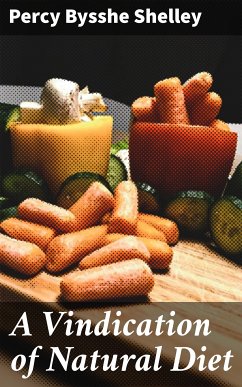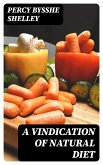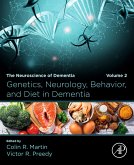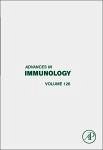In "A Vindication of Natural Diet," Percy Bysshe Shelley presents a compelling argument for the ethical and health-related benefits of plant-based nutrition. Written with Shelley'Äôs characteristic lyrical prose and philosophical depth, the treatise blends scientific reasoning and poetic sensibility, situating the diet within the broader context of Romantic ideals that prioritize nature and harmony. Shelley critically explores the moral implications of meat consumption, emphasizing the interconnectedness of all living beings, which reflects the burgeoning ideas of vegetarianism and humanitarianism in early 19th-century England. Shelley, a key figure in the Romantic movement, was profoundly influenced by his own ethical convictions and a desire to challenge societal norms. His writings frequently interrogate themes of individual freedom and the relationship between humanity and the natural world. His advocacy for a natural diet can be seen as part of his larger philosophical project, encompassing his radical political beliefs and a vision for social reform. Shelley'Äôs letters and poetry reveal his sensitivity to the suffering of others, further motivating his dietary arguments. This book is a must-read for those interested in the intersections of ethics, literature, and nutrition. Its persuasive arguments and rich, poetic language invite readers to reconsider their dietary choices while shedding light on the deeper philosophical underpinnings of our relationship with nature. Shelley's advocacy for a more compassionate lifestyle remains relevant today, making this work not only historic but profoundly influential.
Dieser Download kann aus rechtlichen Gründen nur mit Rechnungsadresse in A, B, BG, CY, CZ, D, DK, EW, E, FIN, F, GR, H, IRL, I, LT, L, LR, M, NL, PL, P, R, S, SLO, SK ausgeliefert werden.









